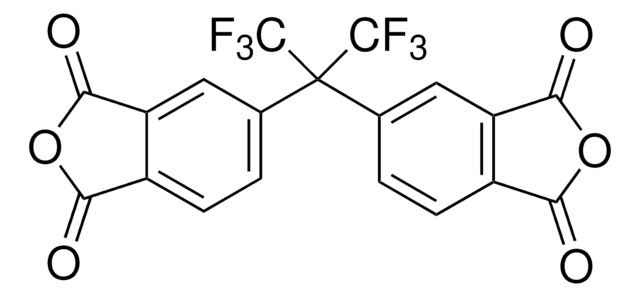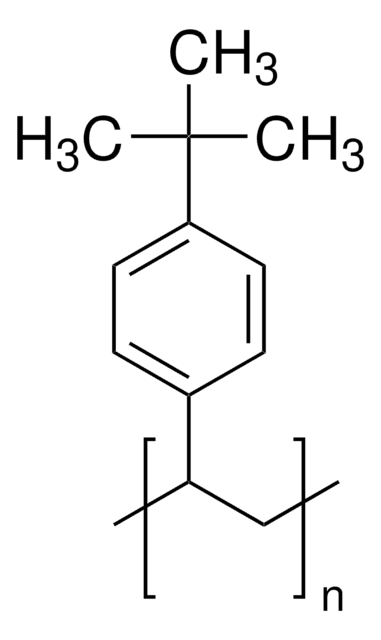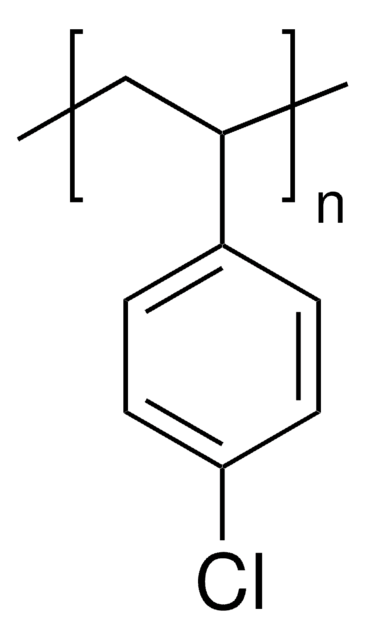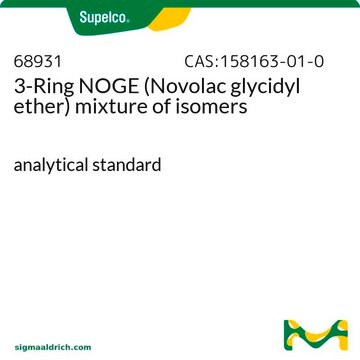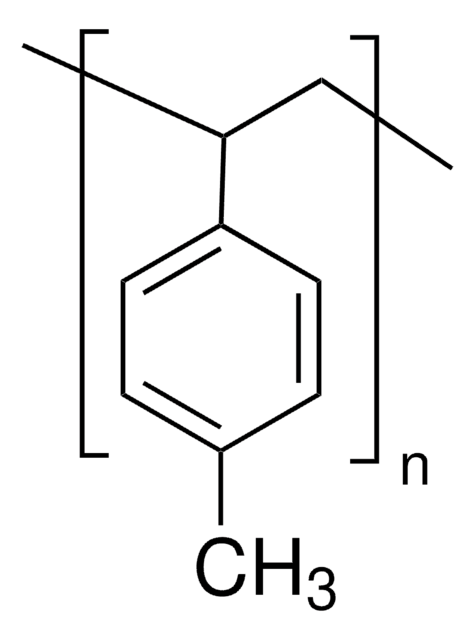436224
Poly(4-vinylphenol)
average Mw ~25,000
Synonyme(s) :
PVP
About This Item
Produits recommandés
Description
intrinsic viscosity parameters α=0.50, k=9.71 × 10-4 dL/g 25°C, in THF
Forme
powder
Poids mol.
average Mw ~25,000
Caractéristiques du produit alternatif plus écologique
Design for Energy Efficiency
Learn more about the Principles of Green Chemistry.
sustainability
Greener Alternative Product
Viscosité intrinsèque
(α=0.50, k=9.71 × 10-4)
Pf
360 °C (dec.)
Température de transition
Tg 130-185 °C
Solubilité
alcohols, ethers, ketones and esters: soluble
aromatics, petroleum ethers and chlorinated hydrocarbons: insoluble
Densité
1.16 g/mL at 25 °C (lit.)
Autre catégorie plus écologique
, Enabling
Chaîne SMILES
Oc1ccc(C=C)cc1
InChI
1S/C8H10O/c1-2-7-3-5-8(9)6-4-7/h3-6,9H,2H2,1H3
Clé InChI
HXDOZKJGKXYMEW-UHFFFAOYSA-N
Vous recherchez des produits similaires ? Visite Guide de comparaison des produits
Description générale
Application
Code de la classe de stockage
11 - Combustible Solids
Classe de danger pour l'eau (WGK)
WGK 3
Point d'éclair (°F)
Not applicable
Point d'éclair (°C)
Not applicable
Équipement de protection individuelle
Eyeshields, Gloves, type N95 (US)
Certificats d'analyse (COA)
Recherchez un Certificats d'analyse (COA) en saisissant le numéro de lot du produit. Les numéros de lot figurent sur l'étiquette du produit après les mots "Lot" ou "Batch".
Déjà en possession de ce produit ?
Retrouvez la documentation relative aux produits que vous avez récemment achetés dans la Bibliothèque de documents.
Les clients ont également consulté
Articles
Flexible electronic circuits, displays, and sensors based on organic active materials will enable future generations of electronics products that may eventually enter the mainstream electronics market.
Notre équipe de scientifiques dispose d'une expérience dans tous les secteurs de la recherche, notamment en sciences de la vie, science des matériaux, synthèse chimique, chromatographie, analyse et dans de nombreux autres domaines..
Contacter notre Service technique









